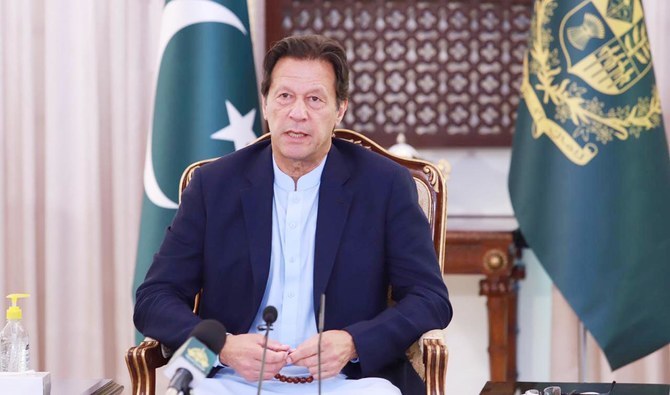PESHAWAR: Prime Minister Imran Khan on Wednesday announced a number of development initiatives while visiting South Waziristan district, saying his government would operationalize high-speed Internet service in the area from today.
“I know the importance of 3G and 4G for education and development, and I talked to the army leadership about this,” he said while addressing a ceremony of tribal elders. “It was a pressing demand of the youth here.”
Last April, thousands of students protested across the tribal belt, including South Waziristan, due to the lack of Internet in the area after Pakistan’s Higher Education Commission directed universities to hold online classes amid virus-related lockdowns in the country.
Khan said the Internet service was delayed in the area since there were some security concerns that online connectivity could benefit militant operations.
Soon after his arrival in Wana, the headquarter of South Waziristan, the prime minister addressed tribal elders at a ceremony in which he also distributed checks among successful applicants of the Kamyab Jawan Loan Scheme and Youth Internship Program.
Khan described the merger of the Federally Administered Tribal Areas with Khyber Pakhtunkhwa province as an uphill task, though he added that time would prove it to be the right decision since it would serve the interests of the tribal people.
The prime minister also maintained that his administration was well aware of the established tribal traditions and would allow alternative dispute resolution to settle tribal feuds. He added that the implementation of the mechanism amounted to upholding the traditional jirga system in the area.
“It is just the change of name,” he said. “You will take the decisions.”
Khan noted that at least 70 percent of the people in South Waziristan lived below the poverty line, adding that his government was striving to help them by giving out cash stipends and scholarships.
“Every family will get a health insurance card,” he continued, “that will enable its members to avail medical treatment of Rs700,000 from any hospital annually.”
He said that South Waziristan had a huge potential to produce olives, adding that his government was working to trigger an “olive revolution” by planting saplings to generate more revenue and create greater employment opportunities.
This, he added, would increase people’s income and the tribesmen would not have to travel abroad for jobs.
The prime minister said the residents of the tribal belt had sacrificed a great deal for the country during the war against religious militancy, adding that his government would promote education in the area by building schools, colleges and universities. He also inaugurated a project for the extension of Cadet College Wana.
Meanwhile, people in neighboring North Waziristan district observed a wheel-jam strike against what they called a recent wave of target killings in the area.
“We have already given a wheel-jam call against a latest series of violent incidents such as target killings in which an assistant professor, Dr. Waliullah Dawar, lost his life,” said a senior PTM leader, Saud Dawar, while talking to Arab News. “Our workers have also been harassed. All the main arteries leading to and from North Waziristan district are blocked today.”



















